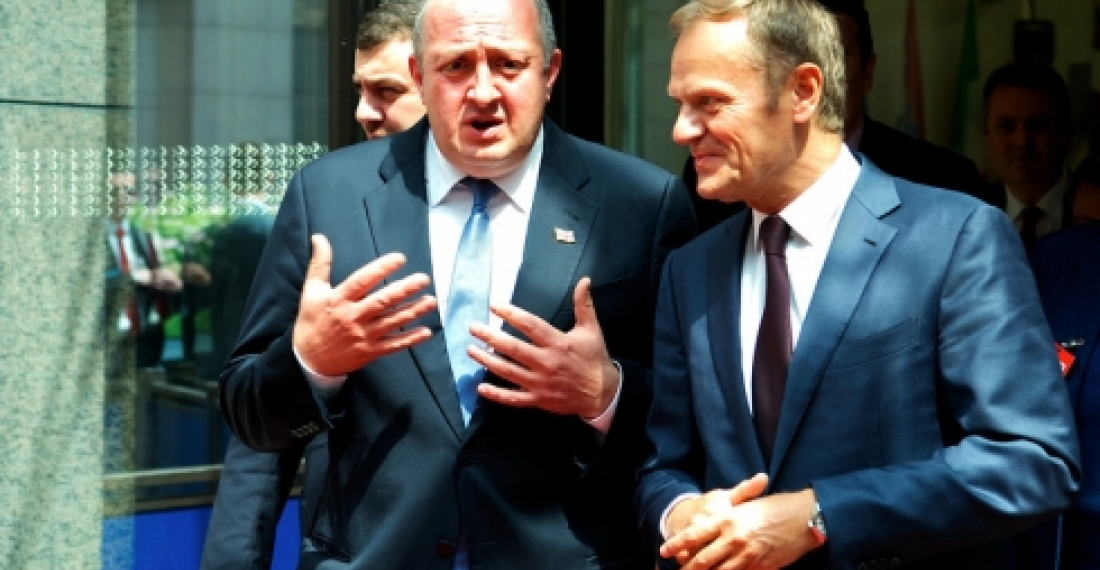Georgia's hopes of an agreement with the European Union to let Georgian tourists travel freely in the Schengen zone were dealt a blow on Wednesday evening, when ambassadors from the EU's biggest countries blocked progress on the deal.
Georgian president Giorgi Margvelashvili was in Brussels to lobby for a 'yes' vote, which was blocked by Germany, France and Italy. A meeting of home office ministers is taking place in Luxembourg on Friday, and of foreign office ministers later in the month, where visa issues will be discussed. However, any chance of the deal being in place before the summer now looks improbable.
The ostensible reason for the German move was fear of crime by Georgian citizens. German diplomatic sources said there had been a series of burglaries by Georgian gangs. However, Georgian officials are confused and dismayed by the delays because they had met all of the EU's technical requirements.
Earlier this week, German chancellor Angela Merkel and Georgian prime minister Giorgi Kvirikashvili had a phone conversation in which the two discussed the visa deal, with the Georgian side emphasising the importance of sealing the agreement quickly.
Jean-Claude Juncker, president of the European Commission, Martin Schulz, president of the European Parliament, and European Council President Donald Tusk, who met with Margvelashvili in Brussels on Wednesday, have all given their support to the deal.
There is "good progress", and a deal will be "forthcoming soon," Tusk told reporters early on Wednesday. However as the day progressed, it became increasingly apparent the deal would be delayed until at least September.
Germany made two demands before the deal can be reached with Georgia. Firstly, Tbilisi must take action on the crime issue, the details of which were not specified. Secondly, the parliament should ratify a "suspension mechanism" letting EU states freeze visa waivers if lots of nationals overstay, or claim asylum.
“There are lots of questions, but no clear answers. I can honestly tell you I don’t understand it," the Georgian president told EU Observer. “You can hardly imagine how this would echo in other countries [in the region] when they are looking at the Georgian case. What will be their conclusions about the credibility of European processes?”
A Schengen visa allows visa-free travel to 26 of the EU's 28 member states, excluding the UK and Ireland.
“Eastern European countries, especially the Baltic states, want the visa issue to be cleared up as soon as possible," an unnamed EU diplomat told EU Observer. “They’re saying that if we don’t give the visa waiver to Georgians, then they will look to Russia instead”.
SOURCE: commonspace.eu and agencies
PHOTO: Margvelashvili and Tusk in Brussels (consilium.europa.eu)






